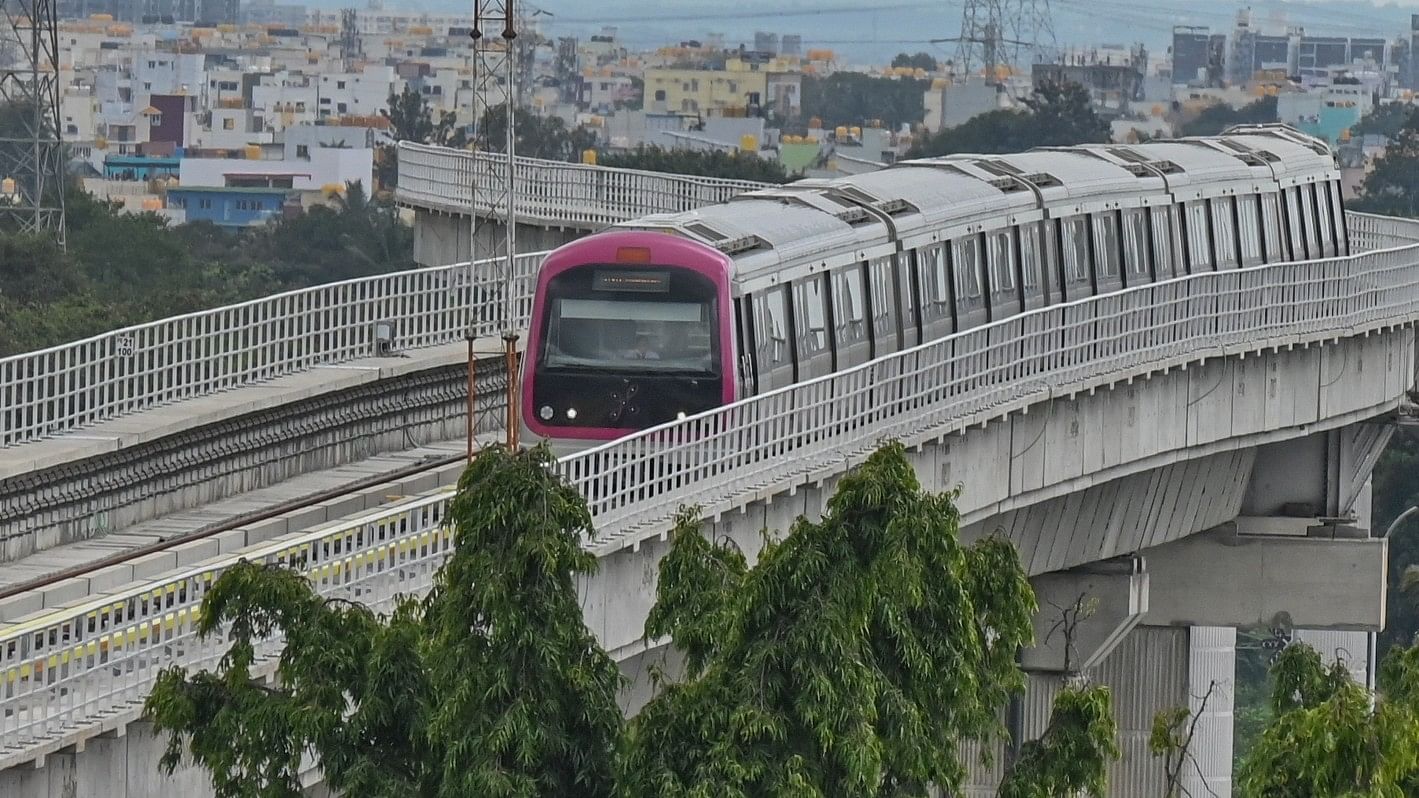
K R Pura to Baiyappanahalli link Namma Metro Railway line.
Credit: DH Photo/S K Dinesh
The woes of commuters in India, heightened by a lack of last mile mobility and multimodal transport options, are expected to be somewhat eased by the introduction of a national common mobility card, which was first announced by the Ministry of Housing and Urban Affairs in March 2019. It may become operational in at least the cities with metro rails in the next one year, according to Bengaluru Metro Rail Corporation Managing Director Anjum Parvez.
Speaking at the Bengaluru Tech Summit 2023 on Thursday, he said the Union government’s plan to introduce a common smart card for passengers travelling in different public transports like metro, train, cab and buses will be launched in six city corporations soon. The card will be functional even across cities and metro networks, he said.
This will improve not just multimodal transportation for passengers, but also the perceived competition between different service providers. “The biggest challenge which we are facing is how to integrate the public bus transport as well as the metro transport not as a competitor, but as a complementary service, as per Parwez.
The RuPay NCMC, which is a pre-paid transit-cum multipurpose card, was launched in the city earlier this year which is currently operational for metro and BMTC bus services. The card can also be used for fuel payments, shopping, dining, parking, toll payments and low-value offline contactless payments.
The ambitious project has faced a number of hurdles in adoption by both passengers and transport providers, both due to a lack of incentive and inadequate infrastructure. Moreover, interoperability between cities and different modes of transport has also posed a challenge due to the coordination effort it would require. Nevertheless, a number of cities are at various stages of adopting the technology.
Uber takes green pledge
During the same panel discussion, Uber India Director Sanjay Chadha said the company’s electric bus service, currently operational in Delhi and Mumbai, will soon come to Bengaluru as well. He urged travellers to leverage bus services to ensure free flow of traffic and to reduce traffic congestion.
At the summit on Thursday, Uber also announced the launch of its global electric vehicle service Uber Green in Bengaluru, and the first vehicles were flagged off by It and BT Minister IT Minister Priyank Kharge.
“Improving air quality in Bengaluru is our collective responsibility. This launch by Uber endorses our commitment to a Green summit. We have taken tangible steps that pave the way for impactful and meaningful changes in the long run and foster a culture of sustainability,” Kharge said.
Uber Green is currently available in only some parts of the city, including most of central Bengaluru, and the company will ramp up service to more geolocations soon. This is part of the company’s commitment to turn its global fleet fully electric by 2030, Chadha said.